Cultural Divide: Frank Ray is a Latino former cop changing the face of country music
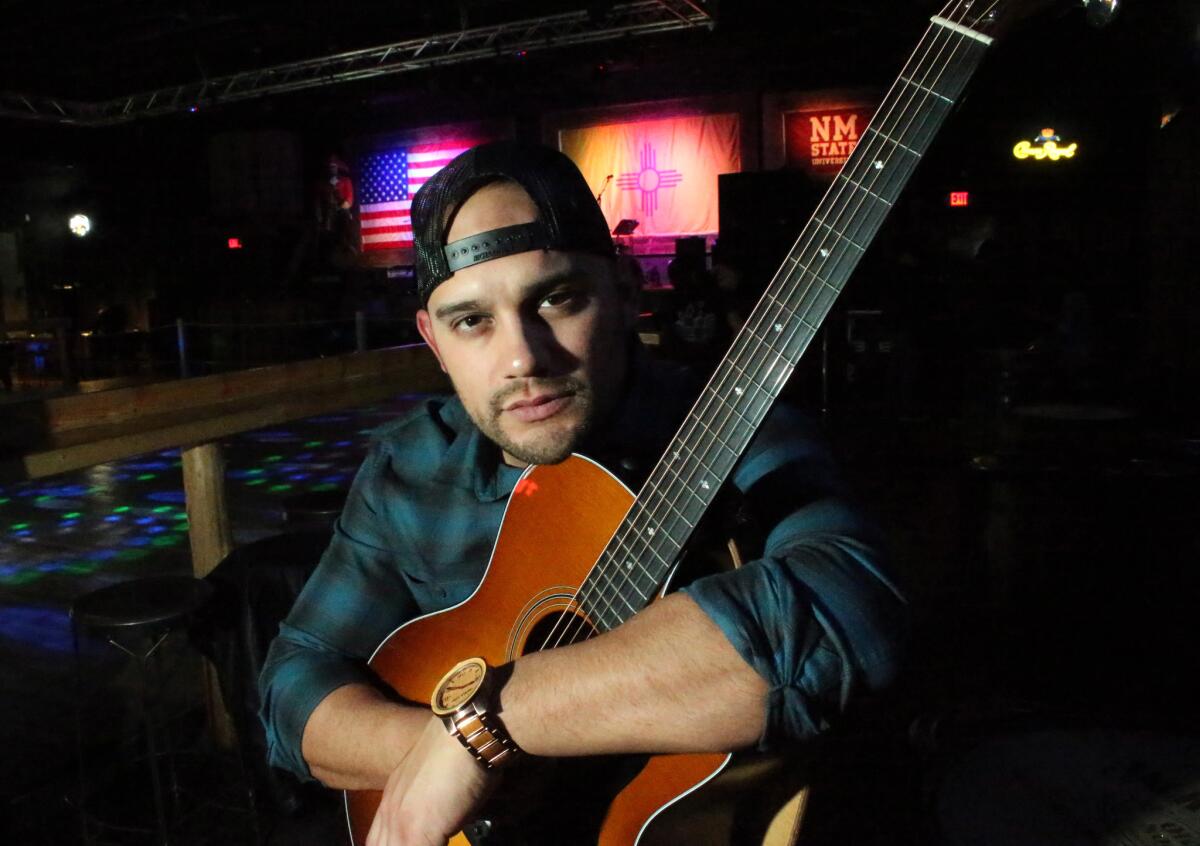
- Share via
Reporting from Columbus, N.M. — The pickup raced along scrub, mesquite and creosote. A cold wind scattered dust beyond the onion factory. The cotton fields were empty, and Frank Ray, who was christened Francisco Gomez, remembered his boyhood when migrants arrived at first light, filling sacks and stripping fields from white to brown again.
He drove a few more miles and crossed into Palomas, Mexico. The air stung and the streets turned ragged. His ancestry began on this side of the border, stitched into promises of riches to the north. He ate lunch and bought a guitar for his daughter. He returned to Columbus carrying bits of history and things that may one day fit into a song like “Different Kind of Country,” an anthem to undocumented and working-class Latinos he wrote to protest President Trump’s anti-immigration speeches.
“Seems like every damn day they want to send us all away,” Ray sings on his first EP. “But if you see it my way / Don’t give a damn about white or blue collar / Worried everyday about finding good work / Trying to make a living for our sons and daughters / Do our very best before they put us in the dirt / If you think that ain’t American / Let me tell you something / We are just a different kind of country.”
The word country is double-edged. It speaks to the nation, but also to country music, which for generations has been a white bastion distilling Southern and heartland notions of America. Ray’s music and legacy embody the fastest growing demographic in country music: young Latinos. His voice and rhythms imbue Nashville, Tenn., and San Antonio, but Ray, a bilingual former cop, is a singer-songwriter looking to stretch country music’s cultural boundaries beyond the tinge of political conservatism.
It’s been a pretty long time since a Hispanic artist has risen to the top of country music. Why is that?”
— Frank Ray
“I want to be the face of country music for Hispanics,” said Ray, 32, a member of the Country Music Assn. “I look back at Freddy Fender, who paved the way for me, and I want people to say that about Frank Ray. Music is universal, but the state of the nation and identity politics concerns me. No one seems to want to find common ground anymore. It’s been a pretty long time since a Hispanic artist has risen to the top of country music. Why is that?”
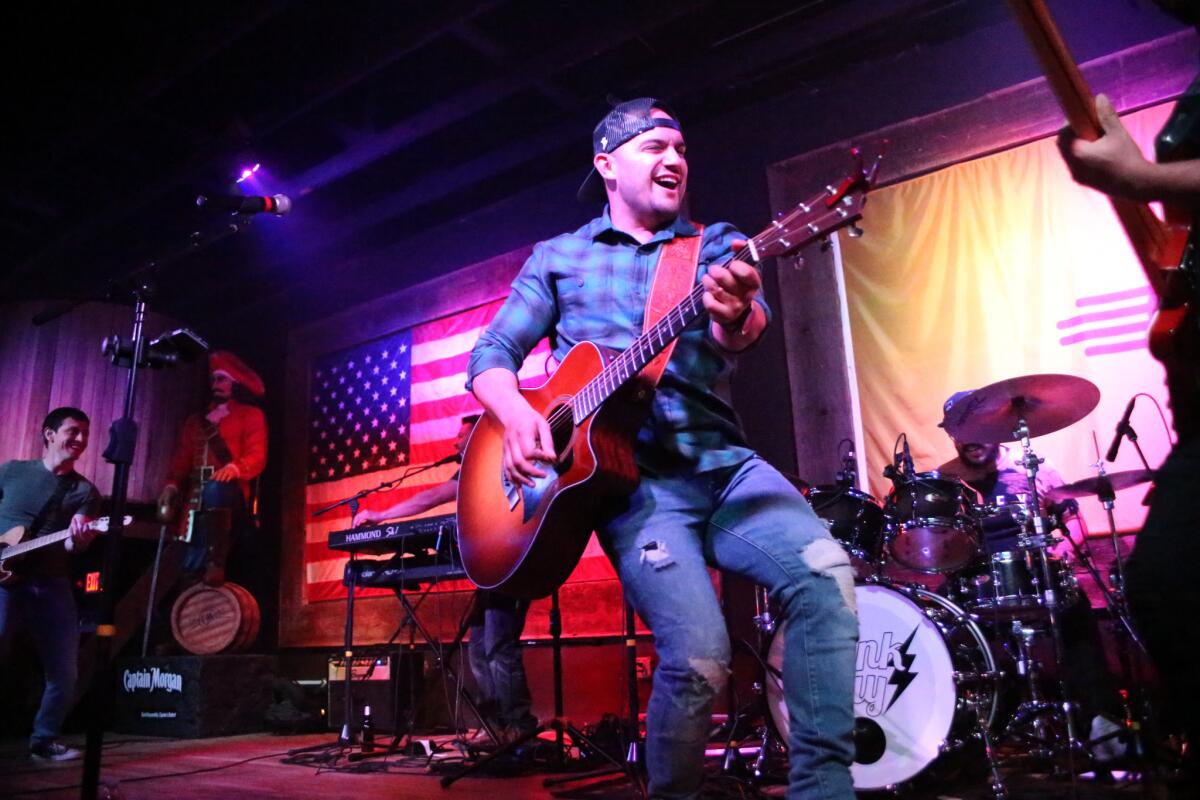
CULTURAL DIVIDE SERIES: Conversations across America ahead of the 2020 election »
Ray is on the ascent. In the last two years, he had a No. 1 song in Texas, competed in the USA Network’s “Real Country” reality show and was named by Rolling Stone as an artist to watch. He collaborates with Nashville producers and musicians Frank Rogers and Steve Dorff — who has written hits for Dolly Parton and Dusty Springfield — and this year will release his second EP. Eight labels, including Sony, have expressed interest in signing him.
There are moments, though, like that night in Tuscaloosa, Ala., when Ray confronts the nation’s acrimonious divides. A Trump supporter, who preferred his country singers white, heckled him and his bandmates when they took the stage.
“It was weird,” said Ray. “It caught me off guard. I tried a joke. I said, ‘Yea, I picked these guys up behind Home Depot and asked them to come play country music.’ It worked and things calmed down. The guy asked to buy me a drink after the show.”

Country songs, notably in the Southwest, have long been influenced by mariachi music and Mexican fiddles. Latino country stars like Fender and Johnny Rodriguez have been followed by artists including the Tex-Mex inspired Last Bandoleros and Rick Trevino, a Grammy Award-winning third-generation Mexican American, who in 2017 paid tribute to his heritage with an album that featured the lyrics “she says I’m a wetback / I say it’s honest sweat” in the song “I Am a Mexican.”
Ray grew up in Columbus but lives in Las Cruces. The city lies about 50 miles north of El Paso, where the high plains meet the Organ Mountains and the Rio Grande runs dry in the hot months. Mercurial and boy-faced, Ray wears turned-around ball caps and hunts elk with a bow. He was a cop here for a decade, talking people out of doing things they’d regret. His wife, Emily, whose father is a Trump man, runs marketing for a truck company. She leaves Post-It notes around the house telling Ray how much she believes in him and his music.
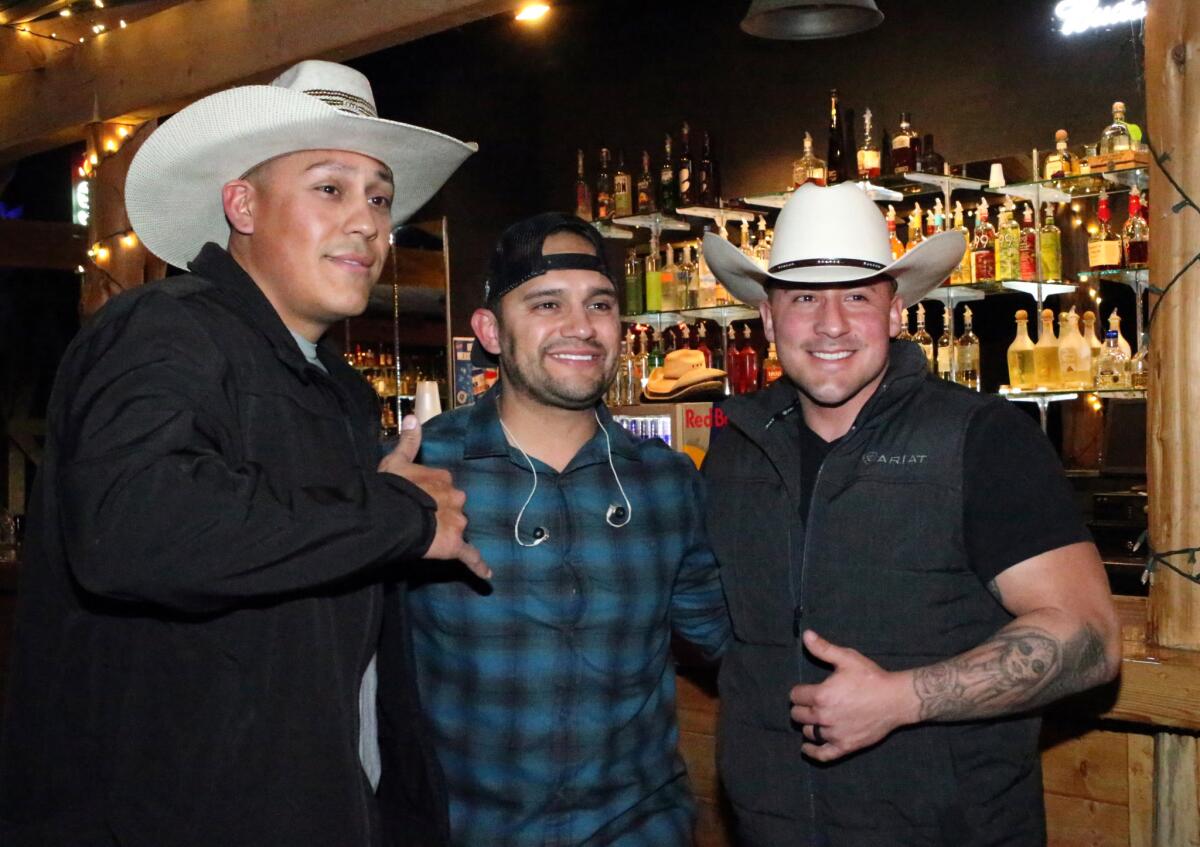
He packed the Las Cruces country music nightclub Whiskey Dicks last month, playing past midnight as couples in cowboy hats two-stepped on the dance floor and his manager, Oscar Chavira — who after he heard Ray sing two years ago, said, “Jesus, I gotta sign this guy” — looked on from the wings, knowing that in a few days, they were heading to Nashville for record company auditions. The crowd cheered and held up smartphones as Ray sang his country hits “The Drive” and “Tequila Mockingbird,” and glided through covers of Prince’s “Purple Rain” and Redbone’s “Come and Get Your Love.”
“We come from all kinds of music,” Ray’s bass player, Mario Saucedo, said before the show. “We all played in Latino churches, and when you play in church, you play gospel, mariachi, pop. You improvise. I’m a ’90s grunge guy with a little funk. Our drummer is more of a jazz guy. He was in a marching band for four years.”
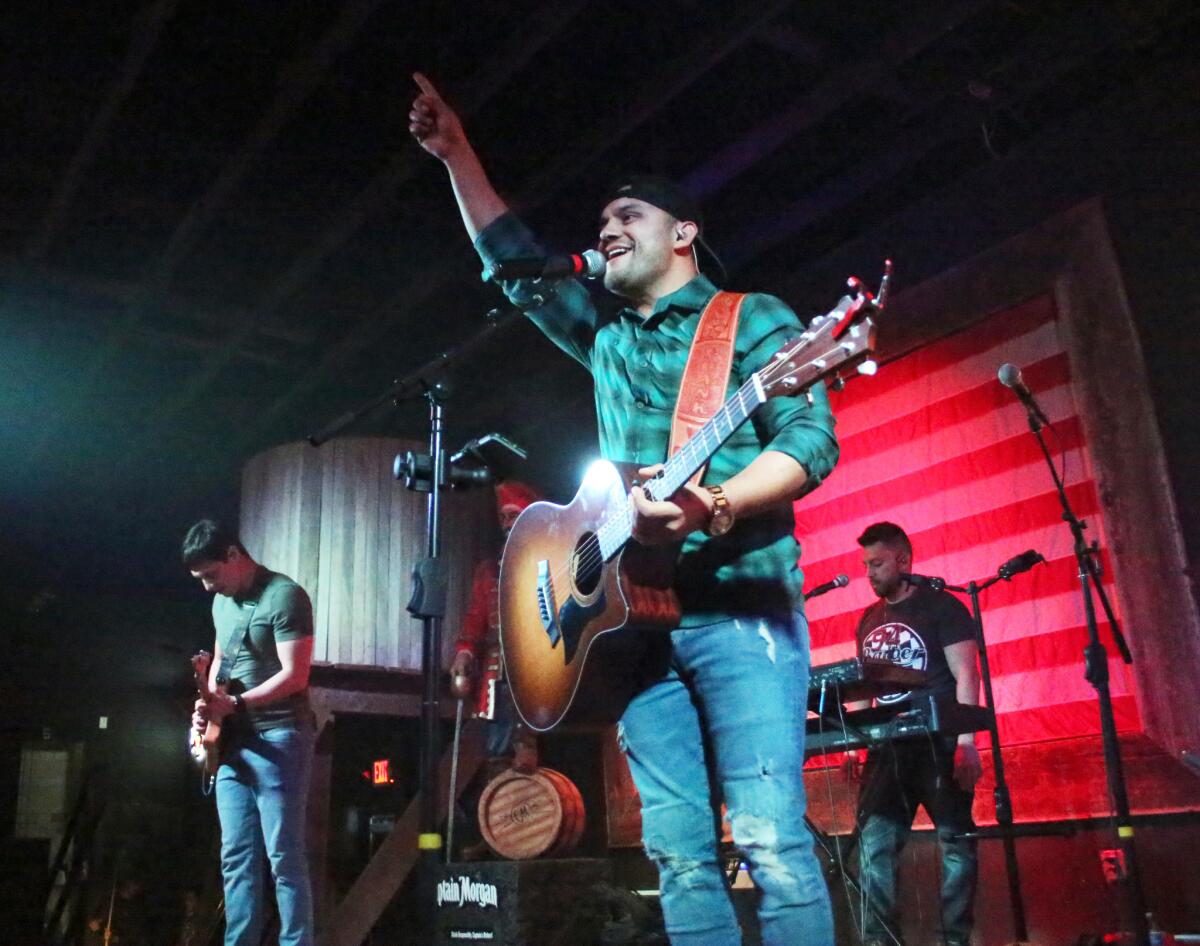
With all this talk of Trump’s wall, Frank’s music is relevant to what’s going on.
— Stephanie Carabajal, police officer, Las Cruces N.M.
Ray’s voice has quick power. It can dip deep and fly, and with the twist of a syllable, he can sound like a grown-up Backstreet Boy or Vicente Fernández, the Mexican king of ranchera music. He roamed the stage as if set loose at recess. The crowd swayed beneath the American and New Mexican flags. Their faces — white, Latino and Native American — were a different portrait from Trump’s vision, living at the border’s edge, a mix of cultures and rhythms bound and tempered by dust storms, day laborers and children fleeing violence in Honduras and Guatemala.
“Frank has the Hispanic taste no one else has. He ties in the fields and farms with Mexican and country music all in one sound,” said Stephanie Carabajal, a police officer who once rode with Ray. “What other country artists can do that? George Strait, maybe. With all this talk of Trump’s wall, Frank’s music is relevant to what’s going on. All his songs are in my phone.”
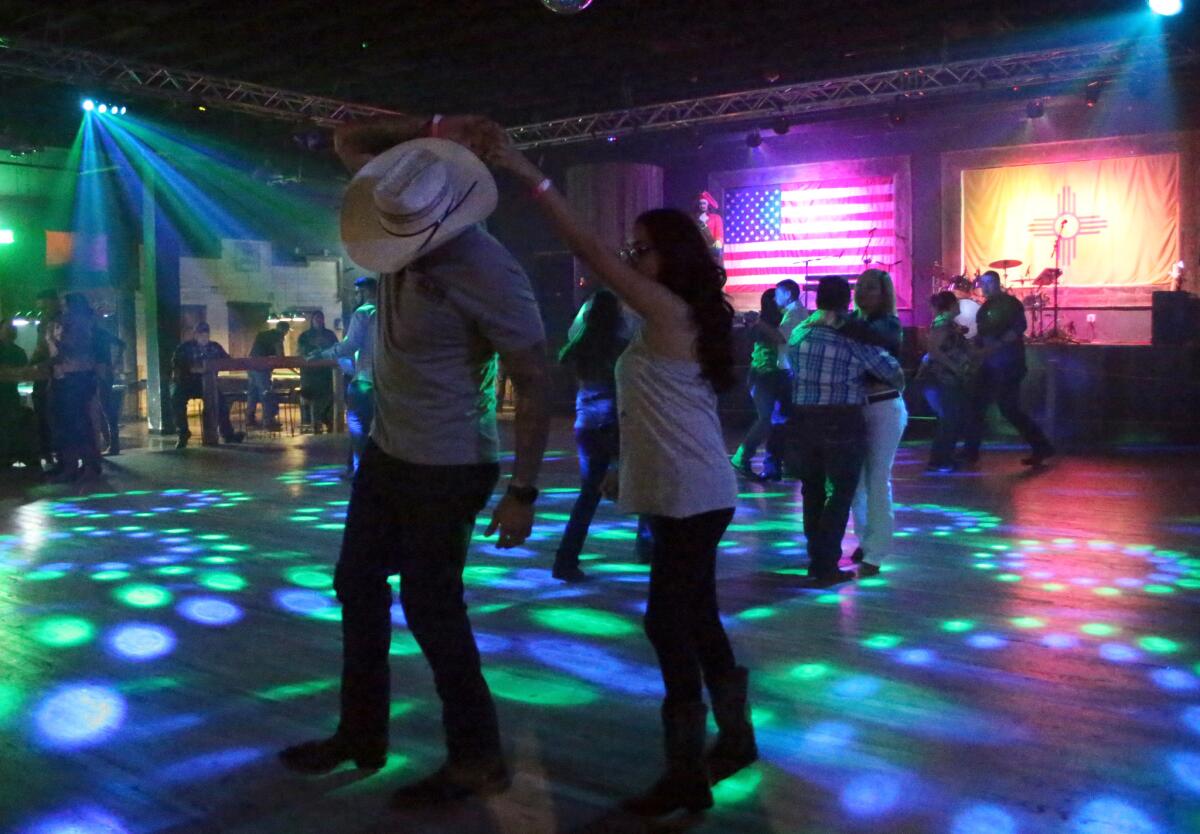
ALSO: How Alabama rapper Rubberband OG navigates racism and violence on his hometown streets »
The crystal ball over the dance floor kept spinning, but Ray, whose songs were mostly about love, was done. He left the stage and walked over to the T-shirt table, posing for pictures with cops and locals who said he was going to make it. They were sure of it. They put their arms around him and smiled. He got home just before 3 a.m. Emily had left a Post-It note: “P.S. I Love You.” She could do things like that; make him stand there in the dark, believing, in the quiet of a sleeping house.
Hours later, he was on the road to Columbus, where his father, Robert, director of public works, lost an eye years ago when a nail flew up while he was working at Holy Family Catholic Church. The town was a flashpoint in U.S.-Mexican history when Pancho Villa’s army raided it in 1916. President Woodrow Wilson responded by dispatching troops to the border. Not a lot has happened since. The town — Robert calls it a village (population 1,600) — recently proclaimed Aug. 1 to be “Frank Ray Day.”
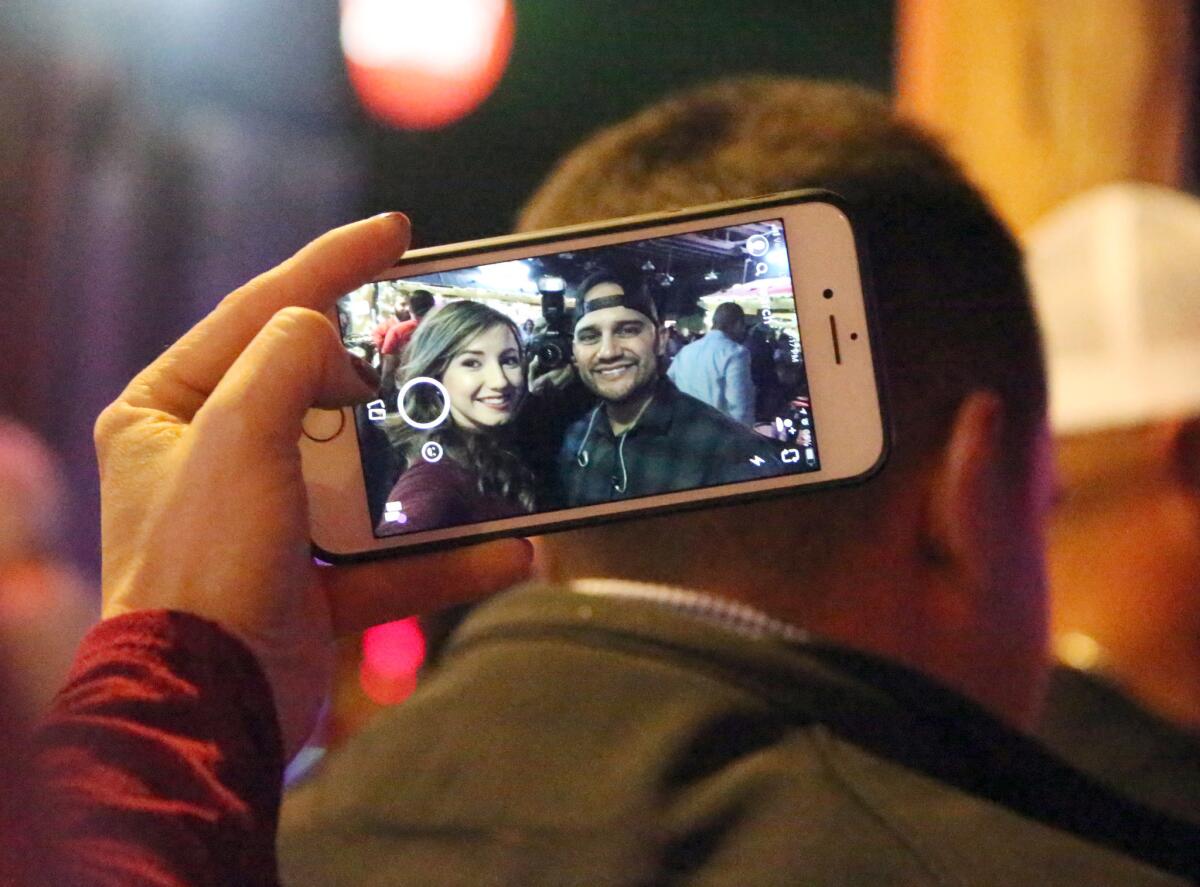
“Francisco Gomez is my real name,” said Ray, acknowledging that sometimes a man must obscure one part of himself to reveal another. “That wasn’t going to fly from a marketing perspective. Ray is my middle name. It drops off the tongue a little easier.”
The white pickup headed southwest. Emily was in the back with their 2-year-old daughter, Mackenzie, and Robert, who Ray was driving home after the Whiskey Dicks show. A dust storm threatened. Ray pointed to the Three Sisters mountain, and Robert told him that his great-great grandfather came from Mexico with his family, settling in Oxnard and then moving to Columbus. Robert grew up on a big farm, but after years of hail and bank loans, the family quit the fields and sold the livestock. Ray has paid homage to that legacy by having the family’s cattle brand tattooed on his bicep.
The wind kicked up. A border patrol helicopter flew low and cut north in the distance. Tumbleweeds danced over the blacktop, and beyond the windshield, except for cars passing, it seemed from another time; copper and scrub for miles, an expanse where a soul would find it hard to hide. Ray mentioned that he spent some of his childhood in San Antonio with his mother, a nurse and part-time gas attendant, after she and Robert split. That’s where songs by Strait and Tracy Lawrence told Ray what he was going to be.
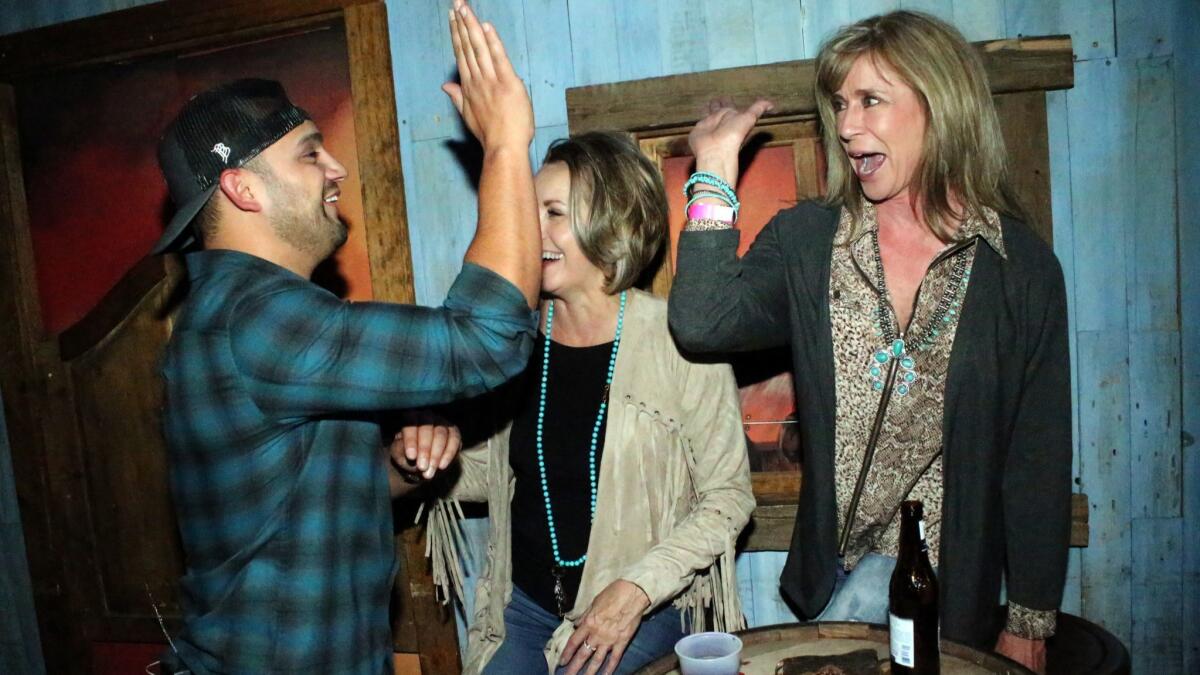
“Country was where it was at for me,” he said. “The music tells a story in the most genuine way possible. I want to tell stories of people who aren’t heard. I was a cop. I know there are criminals and cartels. But most people crossing the border are trying to make a life for their families. It’s wrong to demonize them.”
He so far has not included Spanish lyrics in his music. His upcoming EP is drawn from the catalog of Dorff’s son, Andrew, who wrote hits for Blake Shelton and Rascal Flatts, and died in 2016. Ray said his own songs about Latino culture have to be calibrated to bring the audience along, which is why his sets have a little bit for everyone, including Hank Williams fans. “I don’t want to be known as ‘the Mexican guy,’” he said. “I want to be a great country singer who happens to be Hispanic.”
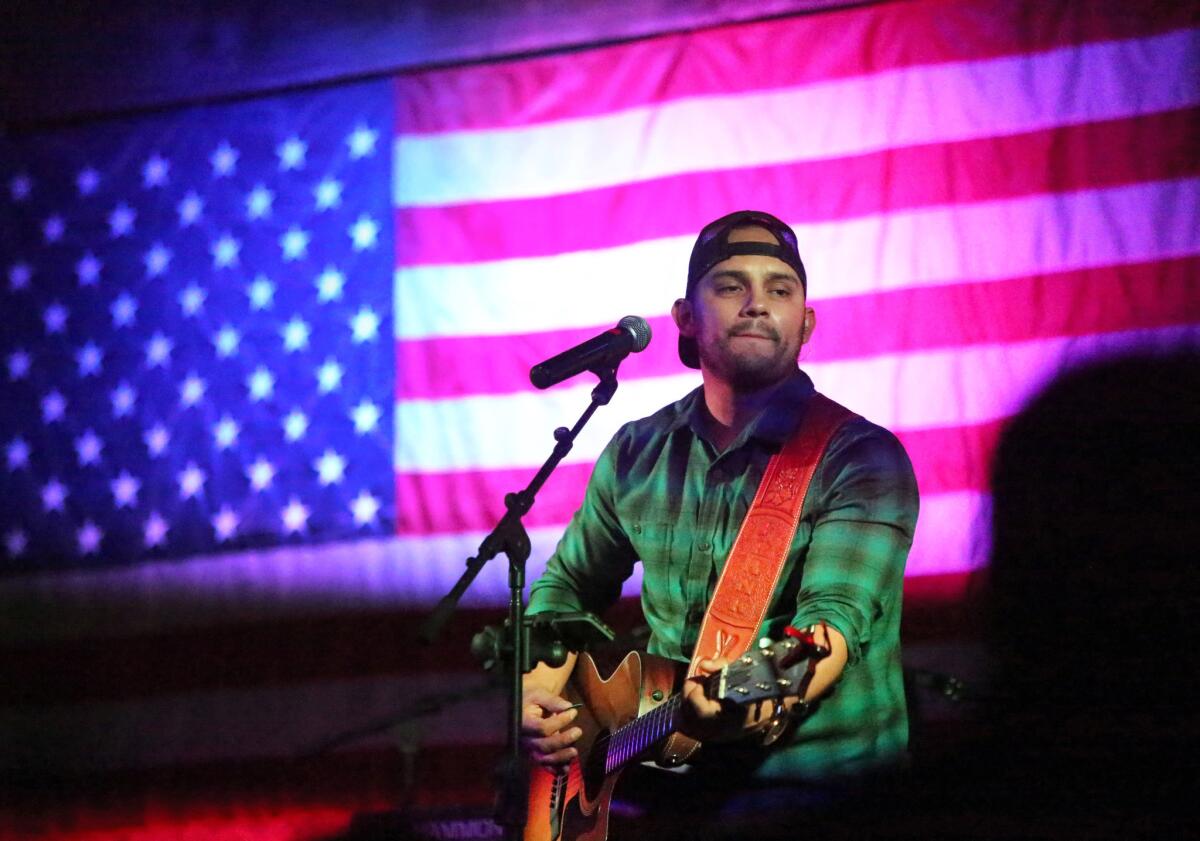
The horizon swirled gray and yellow. Emily leaned forward from the back seat. “When someone has the limelight, they should do something with it,” she said. “As long as he does that — this guy from Columbus, New Mexico — no matter what happens, it’s not a bad thing if you’re known as that guy. You could inspire another Hispanic kid.”
Ray sat with that thought for a while; it was Emily after all who told him to quit the police force and chase what he was meant to do.
She met Ray four years ago when she booked him to play at a truck expo.
“He’s a terrible negotiator,” she said.
“I am,” he said.
“I asked what he charged. He said, ‘$200.’”
They both laughed.
“Best $200 I ever spent,” she said.
That price these days can rise to $10,000.

They drove to Columbus, and then a few miles on into Mexico. They ate lunch. Mackenzie twirled in a cowboy hat and played a small guitar. A mariachi band appeared. Ray handed over $3 and asked them to play “Sabor a Mi.” He was across the border but he was home, speaking Spanish, drinking Dos Equis and recalling when his grandfather would bring him to Palomas and let him run free while the old man went and did things men do.
Ray paid the bill, bought the guitar. The pickup headed back to Columbus and then to Las Cruces. Ray mentioned that his birthday is Jan. 8 — the same day as Elvis. He scrolled his phone and put on his new song, “American Daydream,” with the lyric: “Bumper sticker telling everyone who you voted for ...”
Mackenzie sang along to her father’s voice. The plains stretched cold and wet to the mountains.
This story is the latest in Jeffrey Fleishman’s Cultural Divide series, tapping into the American conversation at a time of restlessness and deep political fault lines.
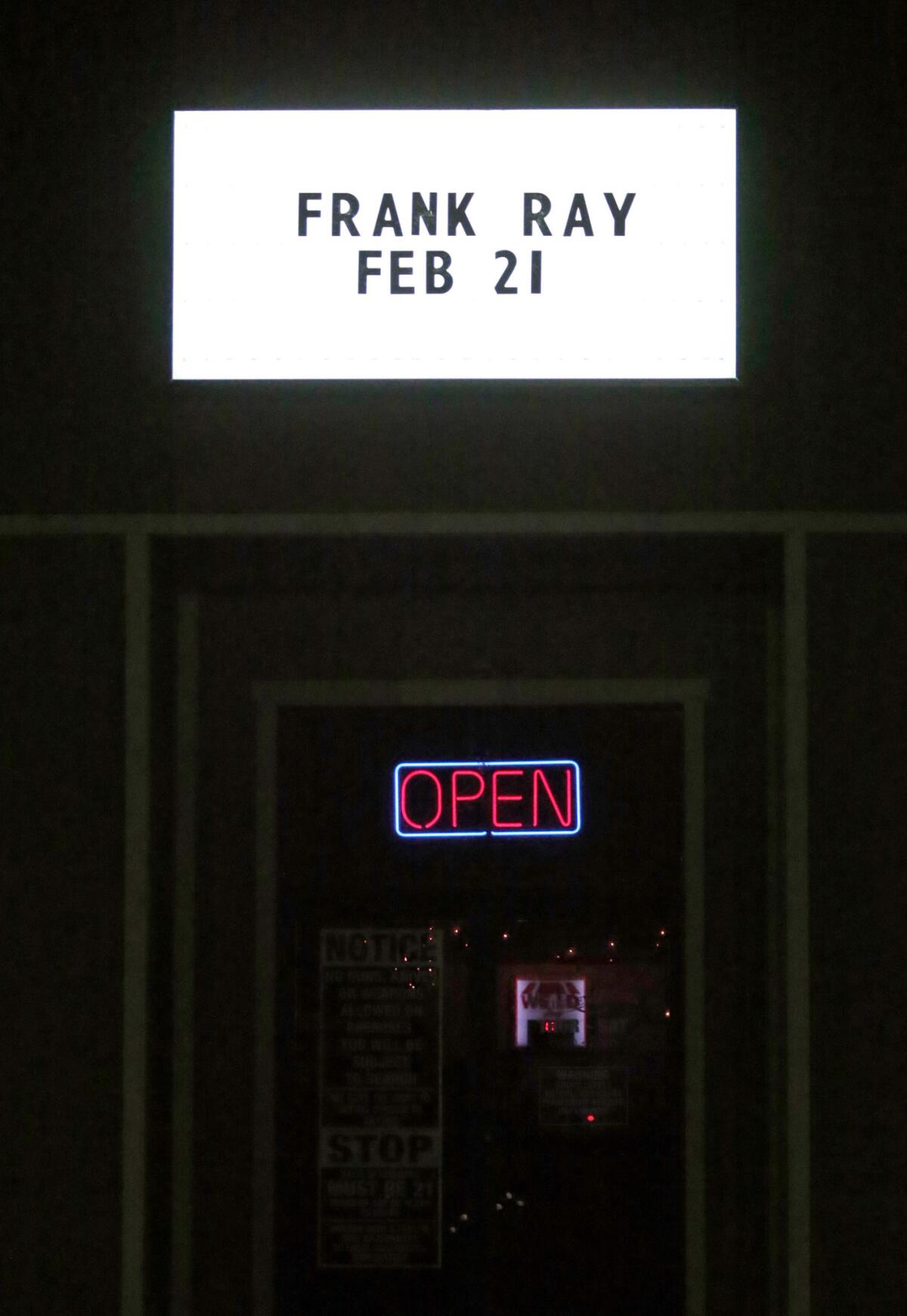
More to Read
The biggest entertainment stories
Get our big stories about Hollywood, film, television, music, arts, culture and more right in your inbox as soon as they publish.
You may occasionally receive promotional content from the Los Angeles Times.











